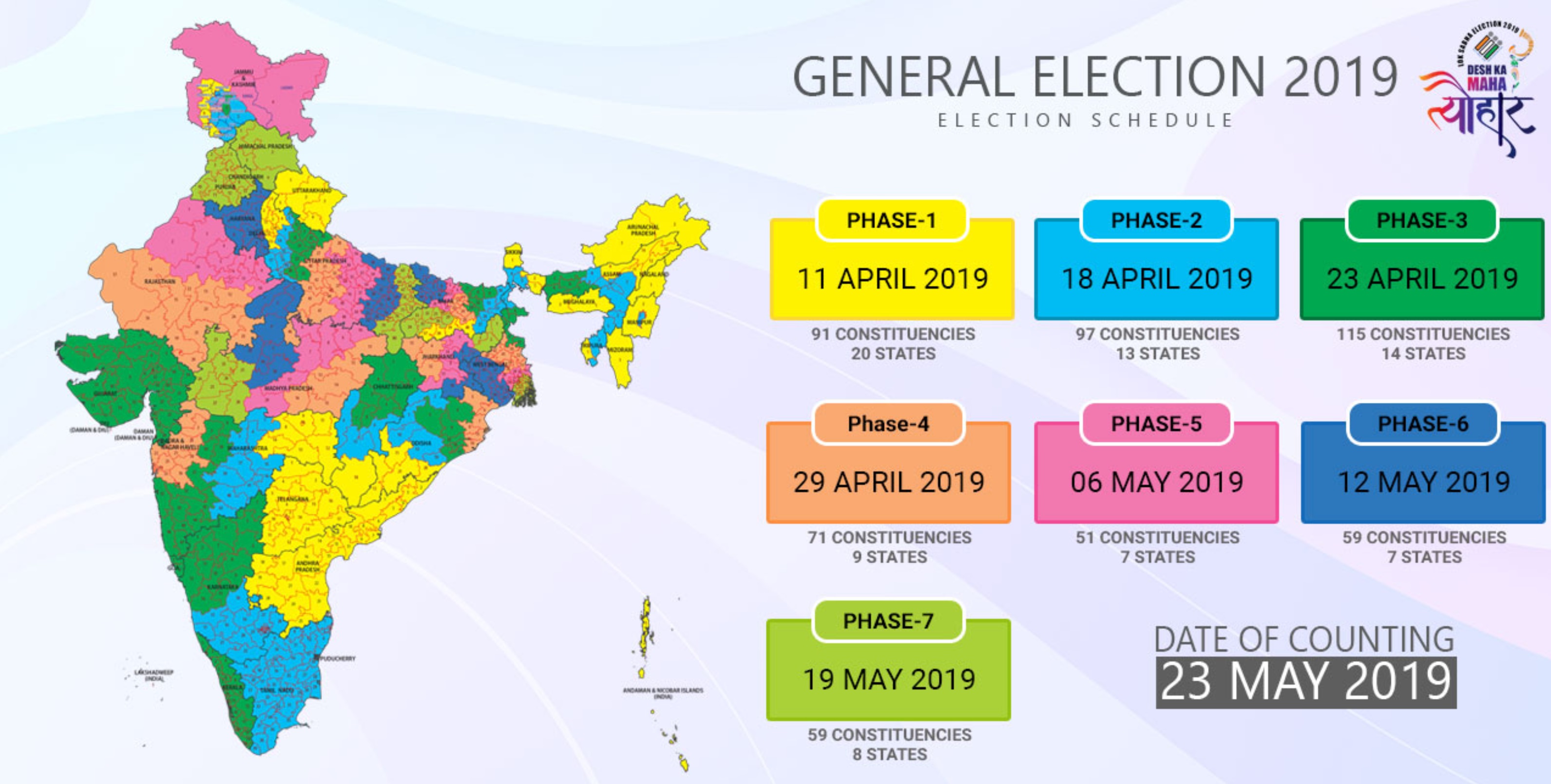Latest news about Bitcoin and all cryptocurrencies. Your daily crypto news habit.

India’s impending general election could affect the government’s process of regulating the crypto industry. A local lawyer has explained to news.Bitcoin.com how the election could impact regulations. According to the Indian Election Commission’s code of conduct rules, no new law can be passed during the election.
Also read: Indian Supreme Court Postpones Crypto Case at Government’s Request
Election Could Delay Crypto Regulation
India’s general election is approaching with the voting due to take place in seven phases between April 11 and May 19. The results will be announced on May 23. Explaining his interpretation of the law pertaining to how the election could have an impact on crypto regulation in India, lawyer Varun Sethi, founder of Blockchain Lawyer, told news.Bitcoin.com Saturday:
During election time in India, ‘aachar sanhita’ or code of conduct applies. Thereby no new law can be passed. Thereby we do not expect government to officially announce any regulation regarding cryptos or others.
Sumit Gupta, CEO of local crypto exchange Coindcx, also shared with news.Bitcoin.com that “According to the Election Commission’s Model Code of Conduct, no major welfare policy decisions can be made once the dates for general elections have been set.” He elaborated, “Since the dates for the 2019 general elections have been made public, the government of India might be able to ‘postpone’ crypto-regulations until after the general elections.”
Sethi further noted, “Till the time the supreme court case is pending for [the] hearing, the government is shielded from making an announcement.” He also clarified that laws could be passed immediately after the results of the election are out since “The code of conduct applies prior to elections not post it.”
The Supreme Court of India gave the government four weeks on Feb. 25 to come up with a report on crypto regulation. The court expected to hear about the regulation on Friday from the interministerial committee headed by Subhash Chandra Garg, Secretary of Department of Economic Affairs, Ministry of Finance. However, it adjourned at the request of the government’s counsel until July.
Crypto Regulation Not to Be Hurried
The Indian government has been drafting a regulatory framework for cryptocurrency for quite some time. Garg previously said on television that a draft crypto regulation would be ready in July last year. However, the government has yet to announce any form of regulation for the crypto industry.
At the end of last year, the Ministry of Finance told Lok Sabha that “the department is pursuing the matter with due caution,” adding that “It is difficult to state a specific timeline to come up with clear recommendations.” Nonetheless, the government told the supreme court during the February hearing that the panel was in the final stages of deliberations.
Sethi further shared with news.Bitcoin.com:
Post election, the government as a populist measure may consider adoption of new technology and cryptos could benefit from it. However that would happen only if the supreme court passes other than negative order.
Gupta remarked that crypto regulation is “a critical decision so it should not be taken in a hurry,” emphasizing that it is “best to take time to come up with a good regulatory framework rather than taking any wrong steps.” He asserted that the “election could be the most probable reason” for the supreme court’s decision on Friday “as everyone is busy with general elections … and no one wants to hurry in such a critical step.”
Meanwhile, Reuters reported Friday that Prime Minister Narendra Modi has predicted an easy victory, believing that “his ruling coalition would increase its majority in India’s upcoming election, despite some independent analysts suggesting it could disappear due to discontent over lack of jobs and depressed farm incomes.”
How do you think the Indian election could impact crypto regulation? Let us know in the comments section below.
Disclaimer: Bitcoin.com does not endorse or support claims made by any parties in this article. None of the information in this article is intended as investment advice, as an offer or solicitation of an offer to buy or sell, or as a recommendation, endorsement, or sponsorship of any products, services, or companies. Neither Bitcoin.com nor the author is responsible, directly or indirectly, for any damage or loss caused or alleged to be caused by or in connection with the use of or reliance on any content, goods or services mentioned in this article.
Images courtesy of Shutterstock and the government of India.
Need to calculate your bitcoin holdings? Check our tools section.
Disclaimer
The views and opinions expressed in this article are solely those of the authors and do not reflect the views of Bitcoin Insider. Every investment and trading move involves risk - this is especially true for cryptocurrencies given their volatility. We strongly advise our readers to conduct their own research when making a decision.


